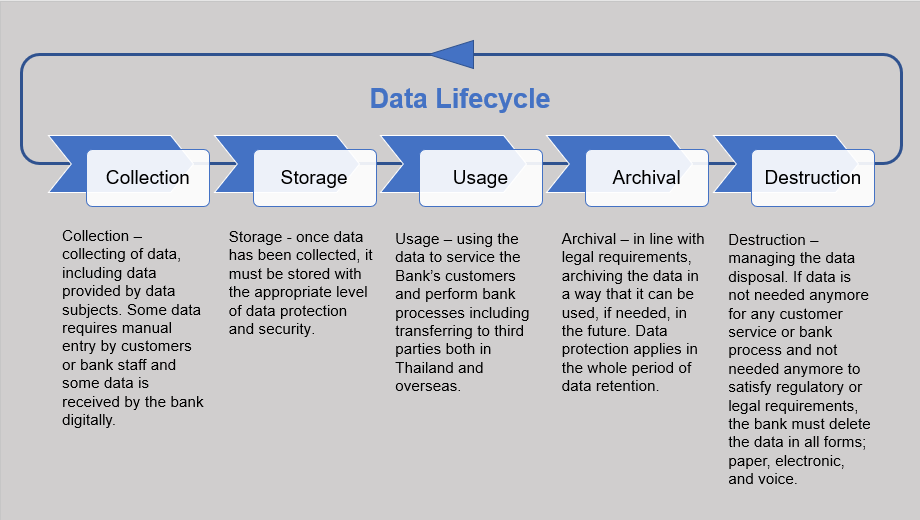The Vital Nature of Information Devastation in Upholding Computer Security Solutions and Protecting Versus Unauthorized Accessibility
In an era where information violations and identity theft are progressively common, the importance of efficient information devastation can not be overstated. Organizations must identify that the failing to appropriately deal with sensitive information poses not only legal and monetary risks but additionally a possible erosion of client trust fund. Different techniques, from data cleaning to physical devastation, function as crucial safeguards versus unapproved accessibility. Nevertheless, comprehending the implications of data destruction methods and conformity with policies elevates vital questions about the competence of current strategies and their long-lasting stability when faced with advancing risks.
Relevance of Information Destruction
In a significantly electronic world, the value of information destruction can not be overemphasized. As companies accumulate huge amounts of delicate details, the prospective repercussions of stopping working to effectively get rid of and take care of of that data come to be increasingly severe. Data breaches, identification theft, and business espionage posture substantial threats, emphasizing the requirement of efficient information devastation techniques.

Moreover, as technology evolves, so as well do the methods through which harmful actors look for to exploit delicate info. Organizations must stay aggressive and alert in their information destruction methods to protect versus these evolving threats. By prioritizing information devastation, firms not only protect their properties however also foster depend on among stakeholders and clients, showing a dedication to liable information monitoring and protection practices.
Techniques of Effective Data Devastation
To make certain the irreparable and total damage of delicate data, organizations can use a variety of reliable methods tailored to their specific needs. One of one of the most usual techniques is information cleaning, which involves making use of specialized software to overwrite existing data several times, making healing virtually difficult. This is particularly useful for solid-state drives and hard drives, where standard removal methods are insufficient.
An additional efficient approach is degaussing, which makes use of solid electromagnetic fields to interrupt the magnetic domains on storage space media, making the data irretrievable. This technique is especially suited for magnetic storage gadgets, such as tape drives and hard drives.
Physical devastation is also a sensible option, including the shredding, squashing, or incineration of storage space devices. This method guarantees that information can not be recuperated, making it perfect for companies handling highly delicate information.

Compliance With Information Defense Rules
Organizations should not only concentrate on effective information devastation approaches however likewise make certain conformity with data security guidelines that regulate how delicate details is dealt with and taken care of. Abiding by these laws is essential for maintaining and protecting personal information consumer depend on. Laws such as the General Information Security Policy (GDPR) in the European Union and the Health And Wellness Insurance Coverage Transportability and Liability Act (HIPAA) in the United States impose stringent guidelines on data administration, which include requirements for the secure disposal of sensitive details.
To accomplish conformity, companies must apply comprehensive data destruction policies find out that align with these legal frameworks. This consists of determining information that requires damage, developing methods for safe and secure methodsâEUR" such as shredding physical media or utilizing software program that fulfills market criteria for data wipingâEUR" and keeping thorough records of destruction activities. Normal audits needs to be conducted to ensure adherence to these plans and to determine any type of possible locations for renovation.
Failing to follow data defense laws can cause considerable lawful ramifications, consisting of significant fines and damage to a company's online reputation. As a result, incorporating compliance right into information devastation practices is not just a legal responsibility yet likewise a crucial element of a robust information safety strategy.
Effects of Poor Data Handling
Poor information handling can cause serious effects that prolong beyond prompt operational obstacles. Organizations might deal with considerable monetary losses as a result of data violations, which commonly cause pricey remediation initiatives, legal charges, and regulative penalties. These economic ramifications can stress sources and prevent growth, ultimately impacting a company's lower line.
Additionally, poor data handling can badly damage an organization's reputation. Stakeholders, companions, and consumers might shed rely on an entity that falls short to secure delicate info, bring about reduced consumer loyalty and possible loss of organization possibilities. This disintegration of trust fund can take years to restore, if it can be brought back in any Web Site way.
In addition, companies could face lawful implications arising from non-compliance with data security regulations. Such offenses may cause penalties and investigations, compounding the economic problem and further staining the company's image.
In the realm of cybersecurity, inadequate data management practices can create susceptabilities that make systems a lot more prone to unauthorized accessibility and cyberattacks. Inevitably, these consequences underscore the essential value of executing robust data dealing with treatments to protect delicate info and maintain business integrity.
Ideal Practices for Secure Data Disposal


To start with, data need to be categorized according to its level of sensitivity. Delicate details needs extra rigorous disposal methods, such as shredding physical files and using advanced software program for electronic information wiping. Utilizing qualified data destruction services makes certain conformity with market laws and standards.
Second of all, organizations should apply an information disposal plan that mandates routine audits. This plan must describe the procedures for information retention and damage, guaranteeing that outdated data is gotten rid of promptly and securely. Educating staff members on these procedures is important to fostering a culture of safety and security awareness.
Finally, maintaining comprehensive documents of disposed information boosts liability and provides a clear audit path. This documentation ought to consist of the kind of information damaged, the approach made use of, and the day of disposal.
Verdict
Finally, the essential of reliable data destruction is click now apparent in its role in boosting computer security services and reducing unapproved access threats. Taking on durable approaches such as data wiping, degaussing, and physical damage, together with conformity with policies like GDPR and HIPAA, is necessary for protecting delicate information. Neglecting proper information disposal techniques can cause serious effects, including data violations and legal repercussions. Carrying out finest methods in secure data disposal inevitably strengthens business honesty and customer count on.
In a period where information violations and identity theft are increasingly widespread, the significance of effective data damage can not be overstated. data destruction. Data breaches, identity theft, and corporate espionage pose substantial risks, highlighting the need of effective data damage methods
Compliance with laws such as GDPR and HIPAA mandates that organizations apply rigorous information security steps, consisting of the safe destruction of data at the end of its lifecycle.
By prioritizing information destruction, firms not just secure their possessions but also foster trust fund amongst stakeholders and clients, showing a dedication to liable information management and safety and security techniques.
Organizations have to not just concentrate on reliable data destruction techniques yet likewise ensure compliance with information protection regulations that regulate exactly how sensitive info is managed and disposed of.